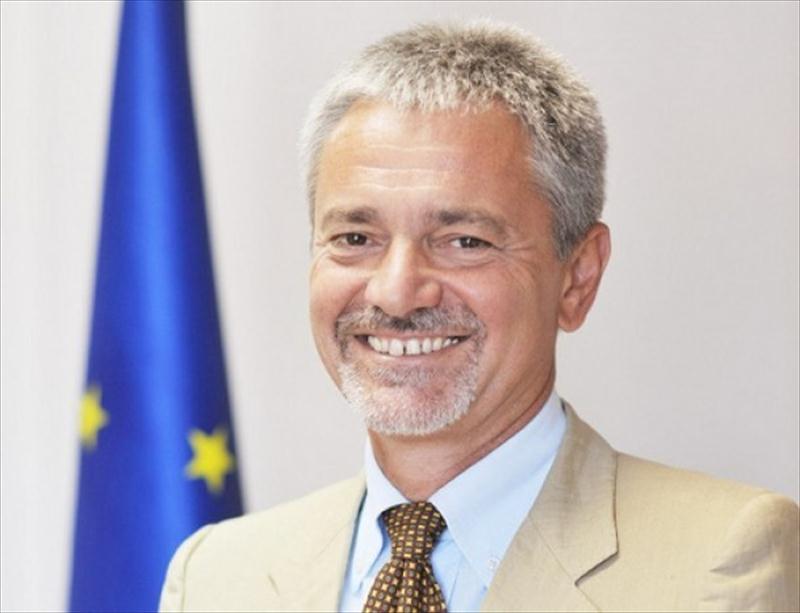“Religious, Cultural and Historical Heritage as a Foundation for more Intensive Cooperation amongst States”
Mostar, Bosnia and Herzegovina, 2-3 June, 2012
Mister President, Your Excellencies Heads of States, Mrs. Director General,
Honourable Ministers, Ambassadors, Ladies and Gentlemen,
On behalf of the President of the European Commission Jose Manuel Barroso, I would like to thank you very much for inviting the European Commission to address this important Summit.
There is hardly any other region in Europe where a cross-border co-operation on religious, cultural and historical heritage could offer such significant value to its economic and development; a real boost to building a shared identity and a common vision.
As highlighted already by some of the previous speakers, culture and heritage has an important role to play when it comes to building a socially and economically sustainable Europe and contributing to social integration. However, as with many other sectors, heritage policy is being affected by the global economic downturn. There is everywhere a great threat of cuts in public funding, hence there is a danger of rash decisions being taken aimed at short term economic results, without considering their long term effects. At time of crisis there is also a risk that countries and communities could become more inward-looking. The European Commission strongly believes that public funding for the care and conservation of heritage needs to be upheld in order to build strong public/private partnerships that will help develop the full potential of this important sector.
Cultural heritage policy in the European Union is changing and responding to new trends. The most important element of the new vision is extending the scope of heritage. Today ‘cultural heritage’ is not only about monuments and sites, but also archives, museums and collections, social objects, customs, natural and cultural landscape.
The EU plays a vital supporting role in this domain either as part of the European Agenda for Culture or through various funds and programmes, including the Ljubljana Process I and II that focus on rehabilitation of common heritage. The European Agenda for Culture sees a role for cultural heritage in all three strategic objectives: promoting cultural diversity and intercultural dialogue; making the culture as a catalyst for creativity, growth and jobs; and developing culture’s role in international relations.
[For a number of years, the European Commission has been a major contributor to cultural heritage projects. With a budget of EUR 400 million allocated for the period 2007-2013, the Culture Programme supports projects, organisations, promotional activities and research in all fields of culture and heritage. From 2007-2011, 105 cooperation projects in the field of cultural heritage have been financially supported through the Culture Programme representing a global amount of about 26 millions euros, many of them in SEE region.]
Ladies and Gentlemen,
A better understanding of the economic value of heritage and the promotion of cross-sector capabilities in heritage management are opening new avenues of regional co-operation. This is of special significance for South and Eastern Europe, which has major untapped resources from tourism to re-building of heritage infrastructure.
The EU and South East Europe region can further integrate the cultural and creative sectors into local development strategies. This could be done through smart specialisation and through reinforcing a creative environment that promotes traditional cultural assets (cultural heritage, touristic destinations, dynamic cultural institutions and services). This stimulates the development of creative businesses and spills over into existing local entrepreneurship. In order to obtain the recognition of cultural heritage, it is also essential to co-operate with civil society organisations.
The EU and South East European region have no choice but to continue to highlight the economic importance of heritage. We should think more strategically on how to better project European and region’s cultural heritage on the international scene and open up new markets. We may achieve better results if we have a more common European or regional approach on the role of cultural heritage in international relations.
Ladies and gentleman,
Because of all these challenges, it is of crucial importance to link cultural heritage policy with the other policies areas at European, regional and national level. The preservation of cultural heritage is our common responsibility. If we want to embrace the future and aspire towards a more sustainable growth, we need to know our past and use our assets in the field of culture effectively. Cultural heritage is the link with our past: by really knowing (protecting and promoting) our past we shape our future and the future of the next generations together.
Thank you.




